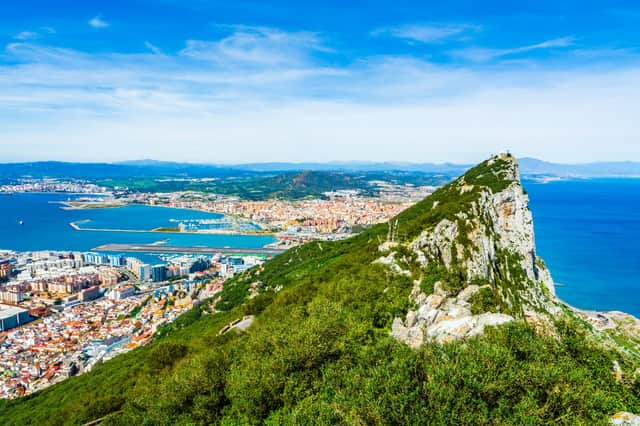This is why towns want to become cities, as 39 places apply for city status next year


No fewer than 39 places have applied for city status in 2022.
The applicants, which include British Overseas Territories and Crown Dependencies for the first time, could be granted the status to mark the Queen’s Platinum Jubilee.
Advertisement
Hide AdAdvertisement
Hide AdEntries include Stanley in the Falkland Islands - almost 8,000 miles away - and Gibraltar (pictured) as well as places in England, Scotland, Wales and Northern Ireland.
Here’s all you need to know about why towns and other places want to become cities, the criteria they have to meet and the 39 locations to have applied for city status in 2022…
Why do towns want to become cities?
Having city status can provide a boost to communities and open up new opportunities for the people who live there, according to the Cabinet Office.
Previous towns to achieve city status have pointed towards ‘putting X on the map’, being seen as part of an ‘elite club’ and the benefits it will provide to the economy.
Advertisement
Hide AdInternational recognition is another factor, which again may provide advantages to businesses and the economy, as well as local pride and a subsequent buzz about the area.
Advertisement
Hide AdIn terms of tax breaks, privileges and any other official perks, there are none, merely status - but it’s what that status means to the community and how the area can make the most of it.
How does a town become a city?
Many people could be forgiven for thinking that a city is a large urban place, with many people living there and of course the obligatory old cathedral.
But the cathedral requirement is no longer a necessity, and hasn’t been since the 19th Century, and many places across the UK are classed a ‘city’ with small populations.
Advertisement
Hide AdThe Welsh city of St Davids, in Pembrokeshire, has a population of around 1,600.
So what does it take to become a city?
The say so from the monarch, usually based on ministerial recommendations.
Advertisement
Hide AdThe entrants for City Status in 2022 were asked to talk about the local community and distinct identity which they feel means their area is deserving of city status.
Any links to royalty are also included in the panel’s thinking, which will work with ministers to make recommendations to the Queen.
Advertisement
Hide AdA final decision will be taken in early 2022 and announced shortly afterwards.
Who has applied for City Status 2022?
These are the 39 places which have applied for city status:
Alcester, Warwickshire
Ballymena, County Antrim
Bangor, County Down
Blackburn, Lancashire
Bolsover, Derbyshire
Boston, Lincolnshire
Bournemouth, Dorset
Coleraine, County Londonderry
Colchester, Essex
Crawley, West Sussex
Crewe, Cheshire
Doncaster, South Yorkshire
Dorchester, Dorset
Douglas, Isle of Man
Dudley, West Midlands
Dumfries, Dumfries and Galloway
Dunfermline, Fife
Elgin, Moray
George Town, Cayman Islands
Gibraltar, Gibraltar
Goole, East Yorkshire
Greenock, Renfrewshire
Guildford, Surrey
Livingston, West Lothian
Marazion, Cornwall
Medway, Kent
Middlesbrough, North Yorkshire
Milton Keynes, Buckinghamshire
Newport and Carisbrooke, Hampshire
Northampton, Northamptonshire
Oban, Argyll and Bute
Reading, Berkshire
Peel, Isle of Man
St Andrews, Fife
Stanley, Falkland Islands
South Ayrshire, Ayrshire and Arran
Warrington, Cheshire
Warwick, Warwickshire
Wrexham, Clwyd
Which cities have applied for Lord Provost / Lord Mayor status?
A further 12 cities have applied for Lord Provost / Lord Mayor status, which would allow them to have a ceremonial representative traditionally chosen by councillors.
Bath, Somerset
Derby, Derbyshire
Gloucester, Gloucestershire
Inverness, Inverness
Lancaster, Lancashire
Lincoln, Lincolnshire
Newport, Gwent
Perth, Perth and Kinross
Southampton, Hampshire
Sunderland, Tyne and Wear
Wolverhampton, West Midlands
Worcester, Worcestershire